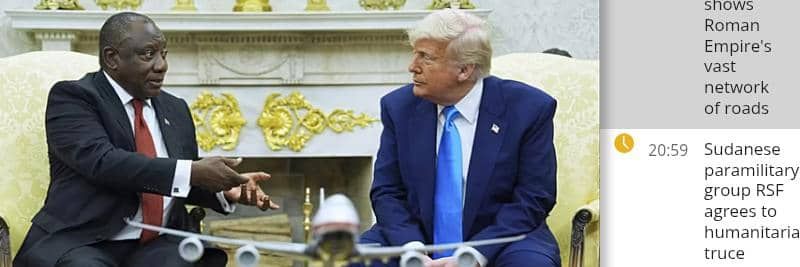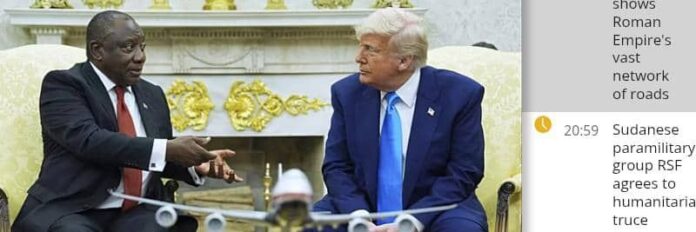By Burnett Munthali
U.S. President Donald Trump criticizes South Africa’s governance and signals absence from the G20, sparking debate over Africa’s representation in global economic forums.
U.S. President Donald Trump has publicly stated that South Africa “shouldn’t even be in the G’s anymore, because what’s happened there is bad.”
He announced that he will not attend the upcoming G20 Summit in Johannesburg later this month, citing dissatisfaction with South Africa’s political and economic trajectory.
Trump claimed that the country has been “going in the wrong direction” and suggested that its domestic policies and human rights record undermine its standing among major global economies.

Speaking at a business forum in Miami, he also referenced South America and South Africa in criticizing left-leaning governments, highlighting perceived mismanagement and corruption.
The president’s remarks come amid heightened tensions in U.S.–South Africa relations, as Pretoria prepares to host the G20 under its rotating presidency.
Trump specifically cited South Africa’s land-reform policies and alleged human rights concerns as part of his justification for calling for the country’s removal from the elite group of economies.
In response, South African officials have rejected Trump’s statements as “factually inaccurate” and reaffirmed the country’s readiness to host the summit and play its role in global governance.
Analysts say Trump’s comments could overshadow the Johannesburg summit and complicate South Africa’s efforts to position itself as a bridge between developed and developing nations.
The United States will still participate in the summit, but Vice President J.D. Vance will represent the country in place of Trump, signaling an official diplomatic distancing.
Observers note that South Africa is the only African member of the G20, and its inclusion has historically reflected its transition from apartheid to democracy and its leadership role in representing the Global South.
Trump’s blunt dismissal, however, has reignited questions about membership criteria for global forums and the extent to which governance standards influence inclusion in elite international bodies.
South African diplomats emphasize that the country’s presence in the G20 reflects its potential to champion inclusive growth, economic reform, and African leadership on the global stage.
Despite these defenses, Trump’s statements signal growing impatience among some U.S. officials toward nations perceived as failing to meet certain governance and human rights benchmarks.
Cape Town and Pretoria now face the dual challenge of hosting a successful summit while managing diplomatic and reputational fallout from the White House’s criticisms.
The Johannesburg G20 is expected to focus on economic reform, global trade, equitable growth, and Africa’s role in the global economy—issues South Africa has long promoted.
By calling for South Africa’s removal, Trump has sparked debate not only about that country’s status but also about the legitimacy and inclusivity of global economic leadership forums.
As preparations continue, attention will remain on South Africa’s response and whether it can leverage the summit to bolster its international credibility or whether the criticism will overshadow its efforts.



